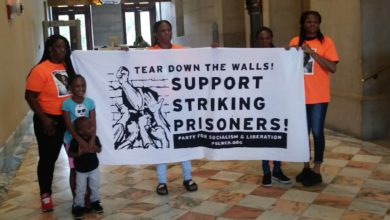The Biden administration announced May 5 its support for waiving intellectual property rights for Coronavirus vaccines as the pandemic ravages countries around the world. This is a reversal of the administration’s earlier position, as well as the stance the U.S. government adopted under Trump.
Western countries with high vaccination rates like the United States, United Kingdom, and Europe are seeing declines in COVID-19 cases since mass inoculations began earlier this year. As of early May, 45.3% of the U.S. population and 55% of the UK population received at least one dose. In contrast, in South Africa and India the vaccination rate is 0.5% and 9.2%, respectively.
Waiving IP rights around vaccines will allow mass production of Pfizer and Moderna’s vaccines by any entity with the capacity to do so, regardless of whether they have a license from these pharmaceutical giants. Lifting IP restrictions will empower these countries to avoid purchasing vaccines at exorbitant prices to pad Pfizer and Moderna’s profit margins. It will allow them instead to use existing domestic infrastructure to produce vaccines at a fraction of the international market prices.
A push is also being made to lift IP rights for European-made vaccines like AstraZeneca’s. Right now, South Africa is forced to pay more than double the EU price for the vaccine.
This major concession by the Biden administration is a product of intense pressure from inside the United States as well as globally. A large section of the U.S. population was moved by the horrific images coming out of India and other countries facing vaccine shortages, and were outraged at this callous policy.
China and Russia, two countries the United States has officially targeted under its “great power competition” doctrine, have been at the forefront of vaccine distribution to developing countries worldwide. As of February this year, China provided medical assistance to 53 countries, supplied 27 countries with vaccines and allocated an additional 10 million doses to support the World Health Organization’s COVAX program. Similarly, Russia has supplied its Sputnik V vaccine to over 50 countries worldwide. Both China and Russia also supplied vaccines to Iran and Syria, who experienced extreme difficulties containing the pandemic as a byproduct of the United States’ unilateral sanctions.
In contrast, the United States, using its wartime Defense Production Act, forced its companies to fulfill domestic orders ahead of other orders, causing a shortage of raw materials otherwise available for export. U.S. domestic orders far exceed the amount necessary to vaccinate its population. This prevented manufacturers in other countries from importing raw materials from the United States to produce adequate vaccine doses, contributing to the global shortage of vaccine options.
After much internal deliberation, the Biden administration concluded it needed to change course. Refusing to waive vaccine IP rights, they calculated, would too severely alienate other nations, which could move closer geopolitically to China and Russia as a result.
Lifting Coronavirus vaccine IP restrictions will save a huge number of lives. And it sets an important precedent. If the decision can be made in this case that saving lives should be prioritized over protecting the rights of pharmaceutical corporations to make profits, why shouldn’t patents on other life-saving medications and equipment be removed as well?





